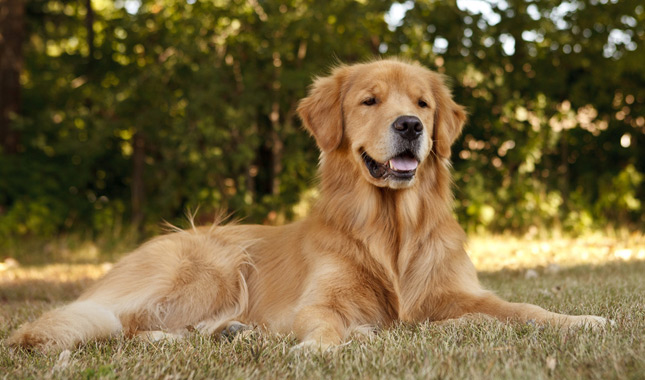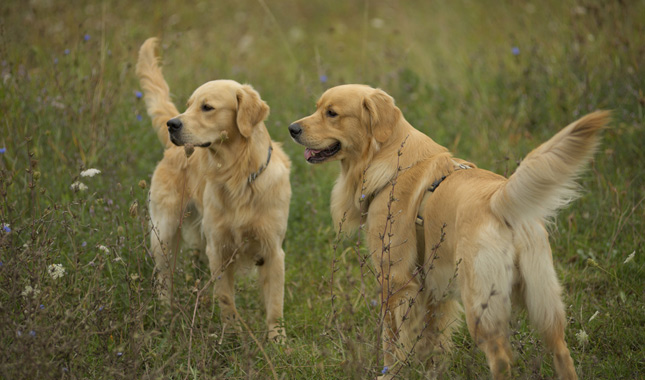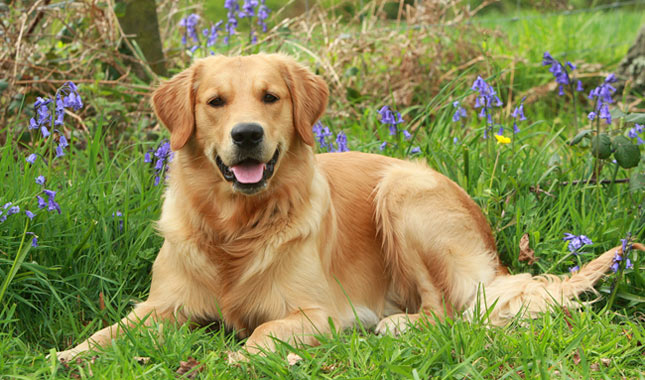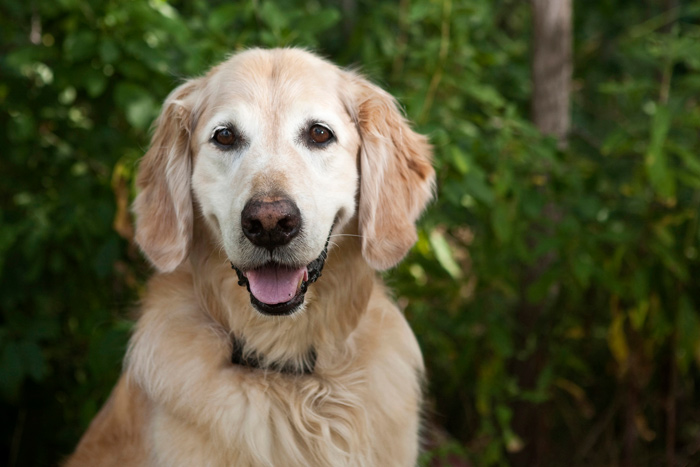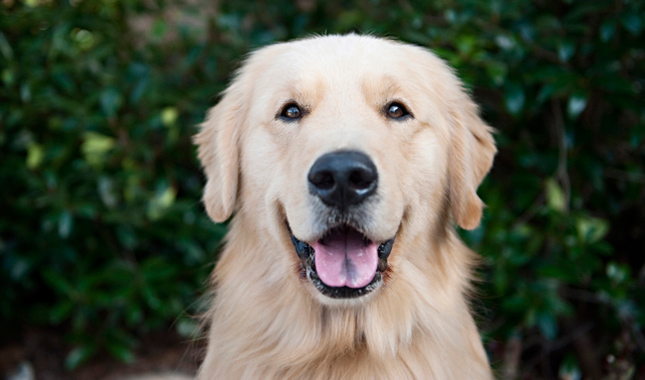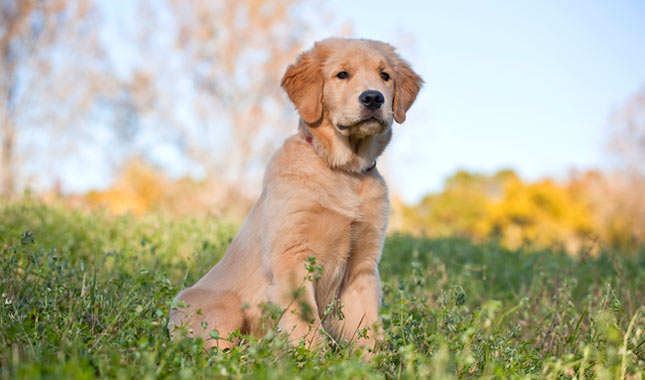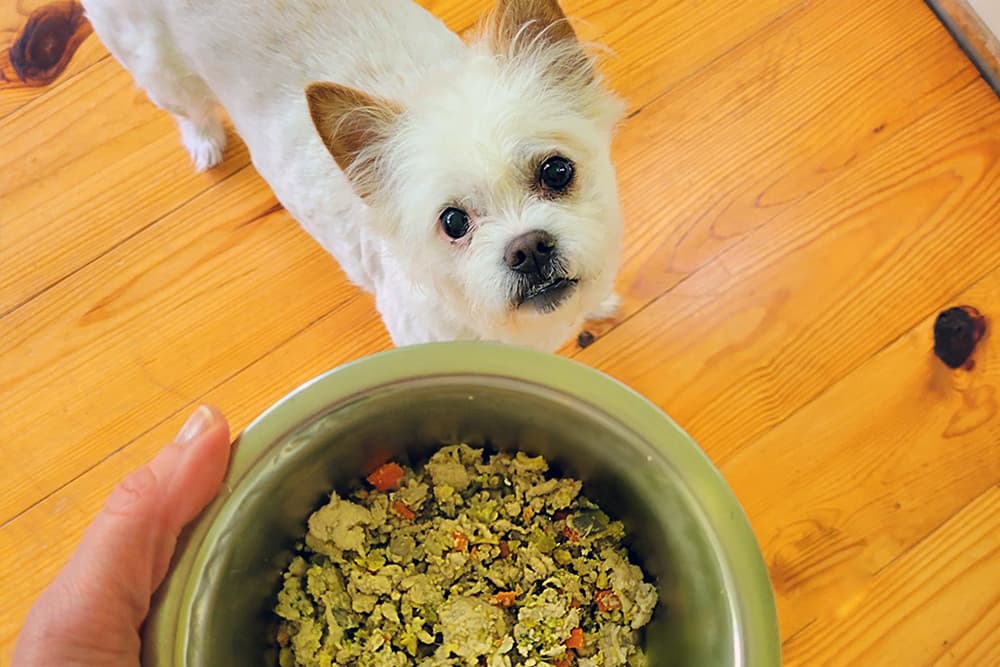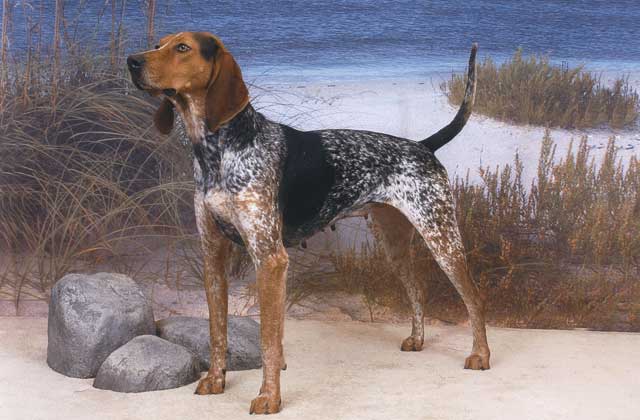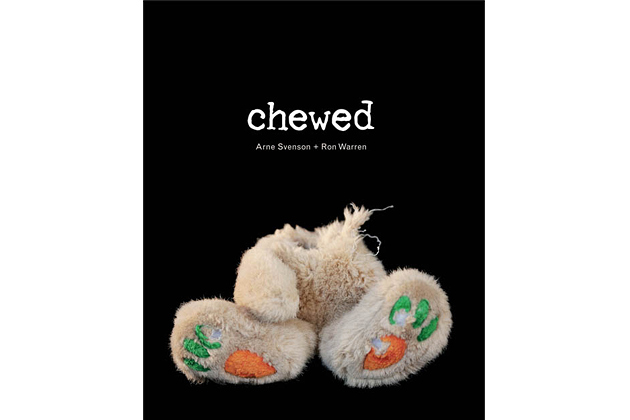Golden Retriever
Published on June 25, 2011
Breed Details
- Height: 21.5 to 24 inches at the shoulder
- Weight: 55 to 75 pounds
Breed Characteristics
Adaptability
Trainability
Grooming
Apartament Friendly
Child Friendly
Shedding Level
Dog Friendly
Exercise Needs
Territorial
Barking Tendencies
Health Issues
Social Needs
Energy Level
Affectionate
Watchdog Instincts
Cat Friendly
Intelligence
Stranger Friendly
This sporting breed has a sweet, gentle, people-pleasing personality. A well-bred Golden Retriever does not have strong guarding instincts, so don’t expect him to protect your home from burglars. He will, however, make friends with them and show them where the treats are. Cheerful, easy to train and eager to please, the Golden Retriever is what you see in the dictionary when you look up “Perfect Family Dog.” Goldens love everyone, especially children, and get along well with new people and strange dogs. They draw admiring looks – and usually loving pats – from almost everyone they meet. The Golden is an active dog who will retrieve a tennis ball until your arm gives out. The breed’s loyalty, intelligence and stable temperament have made them the darlings of the service dog world. Their smiling faces and sun-kissed coats have brought more than a few to movie fame, including a starring role in two “Homeward Bound” movies.
The Golden was developed to be a working retriever, and that means a high level of activity is a must for these dogs. They are best suited to life with active singles, couples or families in which someone is home during the day and will enjoy spending time with and exercising the dog. Goldens love, love, love their people, and they don’t do well as home-alone dogs. They will find their own (destructive) entertainment if no one is home to channel their energy through walking, jogging, hiking, swimming or playing fetch, plus brain games that will wear them out mentally.
Like many breeds developed to hunt, the Golden has diverged into different types – primarily the fluffy, teddy-bear Goldens of the show ring and the leaner, darker, smaller and less-coated athletes popular as hunting companions and dog-sports competitors. Each camp swears their “type” is the best. Dogs bred for looks only – and for the currently trendy near-white color – are anecdotally less healthy and some seem to sport a considerably un-Golden temperament, including problems with biting. Hunting and dog-sports lines may be a little too energetic for many families, but the traditional stable temperaments remain intact, and they may be healthier overall.
Goldens of both types are enthusiastic about exercise. If you aren’t an active person before you get a Golden, you will be afterward — or you’ll suffer the consequences. Goldens get up every morning with one thought on their mind: What are we gonna do today?
Keep your Golden occupied by taking him for extended walks or hikes of at least an hour a day (or break it up into two or three outings), make him your jogging or running partner, or teach him to run alongside your bicycle. Take him swimming at your local lake or beach. He excels at all dog sports, including agility, obedience, flyball, rally, freestyle, dock diving and tracking. Being a therapy dog appeals to his love of people and satisfies his need to get out and do something. If you don’t have kids yourself, enlist the neighbors’ kids to throw tennis balls for your Golden to fetch. That can keep them busy for hours. Teach him tricks and acquire an assortment of puzzle toys to challenge his brain. Often, mental work is just as satisfying — and tiring — as physical exercise, although it can’t replace it entirely.
Now, all that said, it’s important to take it easy with exercise the first two years of a Golden pup’s life. His growth plates are still forming in those first two years, and hard exercise can damage them. Take him swimming, go for walks on grass or other soft surfaces and take easy hikes, but don’t start any jogging, bicycling, steep climbs or descents, or activities that require jumping until he has reached full physical maturity at two years of age.
Golden Retrievers are people-oriented, and if you expect your dog to live in the yard, don’t get a Golden. Loneliness and boredom will lead to barking, digging and general destructiveness. Your Golden Retriever needs to live indoors as part of the family.
Other Quick Facts
- The Golden has a dense, water-repellent double coat that comes in various shades of gold. Goldens shed heavily and require frequent brushing to keep the fur from flying.
- Goldens typically have litters of six to eight puppies. Most breeders like to keep puppies until they are at least eight weeks old. This gives the puppies time to learn how to behave toward other dogs and gives the breeder time to evaluate the puppies’ personalities so she can place each one in just the right home. A bonus is that puppies of this age are more mature and more easily housetrained.
The History of Golden Retrievers
The Golden is one of the breeds created during the dog-loving Victorian era. The breeds in his background probably included a yellow retriever, the Tweed Water Spaniel, wavy- and flag-coated retrievers and a red setter. Dudley Marjoribanks, Lord Tweedmouth, is generally credited with producing the first dogs that were to become known as Golden Retrievers, but recent research into studbooks, old paintings and other sources suggests that dogs similar to the Golden Retriever, possibly a type of setter, existed before Lord Tweedmouth began breeding them at his Scottish estate, Guisachan. England’s Kennel Club classified the dogs as “Retriever — Yellow or Golden” in 1911, then changed the name to “Retriever — Golden” in 1920.
Golden Retrievers were first registered with the American Kennel Club in 1925 and were officially recognized as a breed in 1932. Since then they have established themselves as versatile companions, hunting dogs and working dogs. Goldens are found doing search and rescue, animal-assisted therapy, arson detection, drug detection and assistance work for people with disabilities. Their energy, enthusiasm and intelligence make them well suited to learning and performing almost any task.
Today, Goldens are among the most beloved of breeds and rank fifth among the breeds registered by the AKC.
Golden Retriever Temperament and Personality
Ask anyone about the defining characteristic of the Golden Retriever, and the answer you will always get is temperament. The hallmark of the Golden is his kind, gentle, eager-to-please nature. He craves affection and will seek it from strangers as well as his own family.
Goldens are adaptable and people-oriented, and those characteristics are at the top of the list of reasons people love them. Unfortunately, the breed’s popularity has meant that careless or clueless people have begun churning out Goldens without any attempt to maintain their sweet, gentle disposition. Shyness and aggression can be problems, leading to fear biting or unfriendliness toward people and other dogs.
Proper Goldens love everyone, but that love for people will often translate into jumping as a form of greeting. Basic, early obedience training is a must for these big, rambunctious dogs. Fortunately, Goldens are very easy to train, and a small investment of time when the dog is young will pay off when he’s full-grown. He will readily sit on command, walk on a leash without pulling and come when called.
If not trained, socialized and exercised daily, the good-natured exuberance of Goldens – especially as adolescents and young adults – can be overwhelming, and even frightening to small children, despite the dog’s best intentions to be friendly. Choose a Golden as a family dog only if you are prepared to supervise kids and dog when they are together and make sure everyone plays nicely. It’s normal for puppies to chase and bite in play, so you need to teach a Golden pup how to act around kids, as well as teach the kids how to play properly with the dog.
Any dog, even a Golden, can develop obnoxious levels of barking, digging, food stealing and other undesirable behaviors if he is bored, untrained or unsupervised. And any dog can be a trial to live with during adolescence. In the case of the Golden, the “teen” years can start at six months and continue until the dog is two or three years old. Start training early, be patient and be consistent, and one day you will wake up to find that you live with a great dog.
The perfect Golden Retriever is a product of his environment and breeding. Whether you want a Golden as a companion, show dog, canine competition dog or all three in one, look for one whose parents have nice personalities and who has been well socialized from early puppyhood.
What You Need to Know About Golden Retriever Health
All featured products are chosen at the discretion of the author. However, Vetstreet may make a small affiliate commission if you click through and make a purchase.
Golden Retrievers look beautiful, but are they healthy? An individual Golden certainly can be, but the breed as a whole can be affected by a number of health problems.
At the top of the list of health concerns in the breed is cancer, including hemangiosarcoma, lymphosarcoma, mast cell tumors and bone cancer. Some veterinarians call Goldens “Cancer retrievers,” and treatments for this disease can be emotionally and financially devastating. It’s not known to what extent all these forms of cancer are genetic or exactly how they’re transmitted from one generation to the next, but the sky-high rate of cancer in Golden Retrievers is suspected to be at least partly inherited. The Morris Animal Foundation and the Golden Retriever Foundation have teamed up to do a major cancer study that will focus on Goldens and may eventually benefit other breeds, and people, as well.
Goldens also suffer from a high incidence of the painful genetic hip deformity known as hip dysplasia, which develops when the head of the thigh bone doesn’t fit properly into the hip socket. Serious hip dysplasia can lead to crippling arthritis and requires costly surgical treatment.
Golden Retrievers can also have genetic elbow deformities. Eyes are another problem area in the breed, so make sure the parents have been examined by a board certified veterinary ophthalmologist and certified by the Canine Eye Registry Foundation.
Heart disease is also prevalent in Golden Retrievers, primarily the condition known as subaortic stenosis, a narrowing of the aorta that carries blood away from the heart. This usually shows up first as a slight heart murmur, but murmurs often occur in puppies that have no heart problems as adults. SAS can lead to sudden death, even at a young age, so have your dog’s heart checked at least once a year, and investigate any murmurs thoroughly.
Epilepsy, ear infections, allergies, itching and skin infections, hypothyroidism — sometimes it seems like it would be easier to list the conditions that don’t affect the Golden rather than those that do.
Golden Retriever parents may consider adding a probiotic supplement to their dog’s diet. Great Poop offers a chicken-flavored chewable for ease of administration. Each chew contains fiber, enzymes, prebiotics, and probiotics to support your Golden’s overall digestive health.
Not all of these conditions are detectable in a growing puppy, and it is impossible to predict whether an animal will be free of these maladies, which is why you must find a reputable breeder who is committed to breeding the healthiest animals possible. They should be able to produce independent certification that the parents of the dog (and grandparents, etc.) have been screened for common defects and deemed healthy for breeding. That’s where health registries come in.
Before individual Goldens can be included in the Canine Health Information Center (CHIC) database, the Golden Retriever Club of America requires them to have hip and elbow evaluations from the Orthopedic Foundation for Animals or PennHIP, an OFA cardiology exam, and an eye clearance from the Canine Eye Registry Foundation (CERF). You can search the OFA and CHIC websites yourself to see if a pup’s parents are listed.
Breeders must agree to have all test results, positive or negative, published in the CHIC database. A dog need not receive good or even passing scores on the evaluations to obtain a CHIC number, so CHIC registration alone is not proof of soundness or absence of disease, but all test results are posted on the CHIC website and can be accessed by anyone who wants to check the health of a puppy’s parents. If the breeder tells you she doesn’t need to do those tests because she’s never had problems in her lines and her dogs have been “vet checked,” then you should go find a breeder who is more rigorous about genetic testing.
Careful breeders screen their breeding dogs for genetic disease and breed only the healthiest and best-looking specimens, but sometimes Mother Nature has other ideas and a puppy develops one of these diseases despite good breeding practices. Advances in veterinary medicine mean that in most cases the dogs can still live a good life. If you’re getting a puppy, ask the breeder about the ages of the dogs in her lines and what they died of.
Not every Golden visit to the vet is for a genetic problem. Broken toes and torn toenails, cuts and scrapes, and foxtails embedded in the skin are just another day at the office for these big, active dogs. And like human athletes, Golden Retrievers are prone to cranial cruciate ligament (CCL) tears. The cause of these types of injuries is not yet clear. Researchers are looking into whether anatomy or genetics are predisposing factors.
Remember that after you’ve taken a new puppy into your home, you have the power to protect him from one of the most common health problems: obesity. Keeping a Golden Retriever at an appropriate weight is one of the easiest ways to improve his health and extend his life. Make the most of your preventive abilities to help ensure a healthier dog for life.
The Basics of Golden Retriever Grooming
It takes some dedication to live with a Golden Retriever. The Golden’s profuse coat requires regular brushing and bathing to remove debris and mats. And while all dogs shed, Goldens do it with the same enthusiasm they bring to swimming and retrieving. You can keep it under control with daily brushing to remove the dead undercoat, but if shedding is a deal-breaker at your house, this is not the breed for you.
Like most retrievers, Goldens love water. When your Golden gets wet — and he will — give him a thorough freshwater rinse to remove chlorine, salt or lake muck from his fur, all of which can be drying or otherwise damaging to the coat. Keep his ears dry to prevent infections, and use an ear cleaner recommended by your veterinarian after he goes swimming.
The rest is basic care. Trim his nails as needed, usually every few weeks, and brush his teeth for good overall health and fresh breath.
Finding a Golden Retriever
Whether you want to go with a breeder or get your dog from a shelter or rescue, here are some things to keep in mind.
Choosing a Golden Retriever Breeder
Finding a good breeder is the key to finding the right puppy. A good breeder will match you with the right puppy, and will without question have done all the health certifications necessary to screen out health problems as much as is possible. He or she is more interested in placing pups in the right homes than in making big bucks.
Good breeders will welcome your questions about temperament, health clearances and what the dogs are like to live with and come right back at you with questions of their own about what you’re looking for in a dog and what kind of life you can provide for him.
The Golden Retriever Club of America is a good place to start your search for a responsible breeder. Look for a breeder who abides by the club’s code of ethics, which does not permit the sale of puppies through brokers, auctions or commercial dealers such as pet stores. Breeders should sell puppies with a written contract guaranteeing they’ll take back the dog at any time during his life if you become unable to keep him, and with written documentation that both the puppy’s parents (and if possible, his other close relatives) have had their hips, eyes, elbows and hearts examined and certified by the appropriate health organizations. Seek out a breeder whose dogs are active in agility, obedience and other sports that require athleticism and good health, and not just ribbons from the show ring.
Avoid breeders who only seem interested in how quickly they can unload a puppy on you and whether your credit card will go through. You should also bear in mind that buying a puppy from websites that offer to ship your dog to you immediately can be a risky venture, as it leaves you no recourse if what you get isn’t exactly what you expected. Put at least as much effort into researching your puppy as you would into choosing a new car or expensive appliance. It will save you money in the long run.
Many reputable breeders have websites, so how can you tell who’s good and who’s not? Red flags include puppies always being available, multiple litters on the premises, having your choice of any puppy, and the ability to pay online with a credit card. Those things are convenient, but they are almost never associated with reputable breeders.
Whether you’re planning to get your new best friend from a breeder, a pet store, or another source, don’t forget that old adage “let the buyer beware”. Disreputable breeders and facilities that deal with puppy mills can be hard to distinguish from reliable operations. There’s no 100% guaranteed way to make sure you’ll never purchase a sick puppy, but researching the breed (so you know what to expect), checking out the facility (to identify unhealthy conditions or sick animals), and asking the right questions can reduce the chances of heading into a disastrous situation. And don’t forget to ask your veterinarian, who can often refer you to a reputable breeder, breed rescue organization, or other reliable source for healthy puppies.
The cost of a Golden Retriever puppy varies depending on his place of origin, whether he is male or female, what titles his parents have, and whether he is best suited for the show ring or a pet home. The puppy you buy should have been raised in a clean home environment, from parents with health clearances and show or working titles to prove that they are good specimens of the breed. Puppies should be temperament tested, vetted, dewormed, and socialized to give them a healthy, confident start in life.
And before you decide to buy a puppy, consider whether an adult Golden Retriever might better suit your needs and lifestyle. Puppies are loads of fun, but they require a lot of time and effort before they grow up to become the dog of your dreams. An adult Golden Retriever may already have some training and will probably be less active, destructive and demanding than a puppy. With an adult, you know more about what you’re getting in terms of personality and health and you can find adults through breeders or shelters. If you are interested in acquiring an older dog through breeders, ask them about purchasing a retired show dog or if they know of an adult dog who needs a new home. If you want to adopt a dog, read the advice below on how to do that.
Adopting a Dog From a Golden Retriever Rescue or Shelter
There are many great options available if you want to adopt a dog from an animal shelter or breed rescue organization. Here is how to get started.
Use the Web
Sites like Petfinder.com and Adopt-a-Pet.com can have you searching for a Golden in your area in no time flat. The site allows you to be very specific in your requests (housetraining status, for example) or very general (all the Goldens available on Petfinder across the country). AnimalShelter can help you find animal rescue groups in your area. Also some local newspapers have “pets looking for homes” sections you can review.
Social media is another great way to find a dog. Post on your Facebook page that you are looking for a specific breed so that your entire community can be your eyes and ears.
Reach Out to Local Experts
Start talking with all the pet pros in your area about your desire for a Golden. That includes vets, dog walkers, and groomers. When someone has to make the tough decision to give up a dog, that person will often ask her own trusted network for recommendations.
Talk to Breed Rescue
Most people who love Goldens love all Goldens. That’s why breed clubs have rescue organizations devoted to taking care of homeless dogs. The Golden Retriever Club of America’s Rescue Network can help you find a dog that may be the perfect companion for your family. You can also search online for other Golden rescues in your area.
The great thing about breed rescue groups is that they tend to be very upfront about any health conditions the dogs may have and are a valuable resource for advice. They also often offer fostering opportunities so, with training, you could bring a Golden home with you to see what the experience is like.
Key Questions to Ask
You now know the things to discuss with a breeder, but there are also questions you should discuss with shelter or rescue group staff or volunteers before you bring home a dog. These include:
- What is his energy level?
- How is he around other animals?
- How does he respond to shelter workers, visitors and children?
- What is his personality like?
- What is his age?
- Is he housetrained?
- Has he ever bitten or hurt anyone that they know of?
- Are there any known health issues?
Wherever you acquire your Golden, make sure you have a good contract with the seller, shelter or rescue group that spells out responsibilities on both sides. Petfinder offers an Adopters Bill of Rights that helps you understand what you can consider normal and appropriate when you get a dog from a shelter. In states with “puppy lemon laws,” be sure you and the person you get the dog from both understand your rights and recourses.
Puppy or adult, take your Golden Retriever to your veterinarian soon after adoption. Your veterinarian will be able to spot problems, and will work with you to set up a preventive regimen that will help you avoid many health issues.

